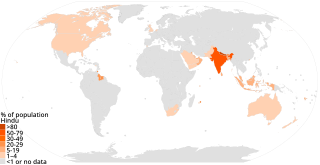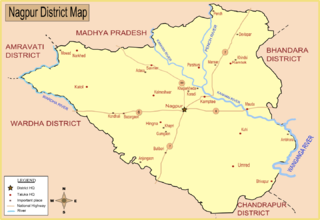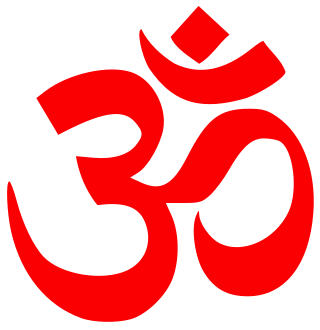Hinduism is a minority faith in Barbados, followed by 0.46% of its population. [1]
| Hinduism by country |
|---|
  |
| Full list |
Hinduism is a minority faith in Barbados, followed by 0.46% of its population. [1]
Hindus constituted 0.24% of the population of Barbados in 1990, which increased to 0.34% in 2000. [2] It then slightly increased to 0.46% in 2010 census. [3]
| Year | Population of Hindus | Percent of Hindus | Increase in Percentage |
|---|---|---|---|
| 1990 | 603 | 0.24% | |
| 2000 | 840 | 0.34% | +0.1% |
| 2010 | 1055 | 0.46% | +0.12% |
Most of the Hindus in Barbados lives in the Saint Michael and Christ Church. Although East Indians constitute 1.3% of the population of Barbados, only 0.46% of Barbadians are Hindus. [4]
Hindus in Barbados comprises mainly the community of just 80 Sindhi families. Every one of them has a home shrine. For many years the Sindhis kept Hinduism alive solely through their private shrines at home, which paid tribute to every Hindu deity, to the Bhagavad Gita and the Guru Granth Sahib, too. A majority of Hindus in Barbados are followers of Maharaj Charansinghji of Beas (a district of Amritsar in the Punjab), Sri Satya Sai Baba or Sadhu Vaswani. It is a community of many vegetarians and teetotalers. [5]
There is a Hindu temple in St Michael in Welches. [6] Hindus in Barbados celebrate Hindu festivals like Holi or Phagwah. [7]
Demographics of the population of Saint Kitts and Nevis include population density, ethnicity, religious affiliations and other aspects.

Hinduism has approximately 1.2 billion adherents worldwide. Hinduism is the third largest religion in the world behind Christianity (31.5%) and Islam (23.3%).

Hinduism is the main and largest religion of Nepal. In 2006, the country declared itself a secular country through democracy, after the abolition of its monarchy. According to the 2021 census, the Hindu population in Nepal is estimated to be around 23,677,744 which accounts for at least 81.19% of the country's population, the highest percentage of Hindus of any country in the world. Vikram Samvat, one of the two official calendars used in Nepal, is a solar Hindu calendar essentially the same to that widespread in North India as a religious calendar, and is based on Hindu units of time.

Hinduism is the leading single religion of the Indo-Caribbean communities of the West Indies. Hindus are particularly well represented in Guyana, Suriname and Trinidad and Tobago. The Cayman Islands also hosts a sizable Hindu population, with 2.4 percent of the country affiliating with the religion. Smaller groups of Indo-Caribbeans live elsewhere in the Caribbean, especially Puerto Rico, Jamaica, Belize, Barbados, Saint Vincent and the Grenadines, Saint Lucia, and Bahamas.
Suriyampalayam is a panchayat town in the city of Erode in the Indian state of Tamil Nadu. It is the Headquarters for one of the four zones of Erode Municipal Corporation. In 2011, Suriyampalayam was an independent panchayat town, but has since been merged with Erode during the Corporation expansion that happened in 2011. The office of Suriyampalayam Zone-I and city bank, Bank of Baroda, is located at Javuli Nagar along the Bhavani Road, although there are other local banks in the area. Its higher post office is located in Kavandapadi.

Hinduism in Seychelles is the second-largest religion after Christianity, with more than 5.4% of the population. The Hindu following in Seychelles has seen an increase in the community with the organization of the Seychelles Hindu Kovil Sangam and the consecration of the Navasakti Vinayagar Temple. The increase in size and popularity of Hinduism caused the Government to declare Taippoosam Kavadi Festival a holiday.

Saoner is a city and tehsil headquarters in north part of Nagpur district in state of Maharashtra, India. The town is governed by Savner municipal council. It is 36 kilometres (22 mi) from Nagpur city. Saoner is located on the bank of Kolar River. It is historically and mythologically important.
Religious democracy is a form of government where the values of a particular religion affect laws and rules. The term applies to all countries in which religion is incorporated into the form of government.

Mauritius is the only African Union country where Hinduism is the dominant religion, with about 50% of the population as followers in 2011. Hinduism is the second largest religion in Réunion (6.7%) and Seychelles (5.4%).

Hinduism in Réunion constitutes a significant part of the island's population. The island of Réunion is home to approximately 200,000 Indian descendants amongst the roughly 800,000 strong population. Estimates of practicing Hindus vary from 6.7% to 10.7%. Yet, uncertainty as to the exact number of Hindus in the country results from the fact that ethnic and religious questions are forbidden in French censuses and members of the Indian population sometimes cross-identify with Roman Catholic and Hindu faiths.

Hinduism spread to Nigeria mainly by arrival of Hindus from India and by way of ISKCON. Sindhis were the first to arrive in Nigeria in the early part of the nineteenth century. Initially, they were primarily engaged in trading but gradually, while retaining their interest in trading, they ventured into other fields such as manufacturing and professional services. In succeeding decades, they made substantial investments, aggregating more than US$4 billion. Sindhi names like Chellaram, Bhojson, Chandrai etc are well known in Nigeria. Indian Sindhis run Superstores and are in the textiles sector, as well as in pharmaceuticals, fishing and engineering industries. Around 1 million Indians live in Nigeria.

Religion in Suriname is characterized by a range of religious beliefs and practices due to its ethnic diversity. The government is vocally supportive of religious diversity and tolerance, and these attitudes are present in general society as well. According to the most recent census (2012), 48.4 percent of the population is Christian, 22.3 percent is Hindu, 13.9 percent is Muslim, 1.8 percent follows Winti, and 0.8 percent is Javanism. In addition 2.1 percent of the population follows other faiths, 7.5 percent are atheist or agnostic, and 3.2 percent did not answer the question about their religion. Later estimates suggest that Christians made up just over half the population in 2020.

The Shri Swami Narayan Mandir, Karachi is a Hindu temple that is the only Swami Narayan temple in Pakistan. The temple is notable for its size and frontage, over 32,306 square yards (27,012 m2) on the M. A. Jinnah Road in Karachi city. The temple celebrated its anniversary of 216 years in April 2004. There is a sacred cowshed within the premises of this temple. The temple is located at the centre of a Hindu neighbourhood in Karachi. The building that housed a dharmshala for visiting devotees has now been converted to the office of the City District Government.

Hinduism is one of the fastest growing religions in Northern Ireland with over 4,000 Hindus in the country, making up 0.22% of the population. There are currently 3 Mandirs in Belfast alone: Radha-Krishna Temple in Malone Road, Laxmi-Narayan Mandir in Clifton Street and Radha Madhava Mandir (ISKCON) in Upper Dunmurry Lane. There is also a Hare Krishna Centre on Inish Rath Island that was established in 1985.
Indians in Brunei consist of Bruneians of Indian descent as well as expatriate professionals that have recently come to the country. According to the Government of India, there are 10,000 Indians living and working in the country.

Sindhi Hindus are Sindhis who follow Hinduism. They are spread across modern-day Sindh, Pakistan and India. After the partition of India in 1947, many Sindhi Hindus were among those who fled from Pakistan to the dominion of India, in what was a wholesale exchange of Hindu and Muslim populations in some areas. Some later emigrated from the Indian subcontinent and settled in other parts of the world.
Chandahandi is a town and Block in Nabarangpur District in Odisha State in India.

Hinduism in Suriname is the second-largest religion. According to ARDA, there are 129,440 Hindus in Suriname as of 2015, constituting 23.15% of the population. Suriname has the second largest percentage of Hindus in the Western Hemisphere, after Guyana (24.8%).
{{cite web}}: CS1 maint: archived copy as title (link){{cite web}}: CS1 maint: archived copy as title (link){{cite web}}: CS1 maint: archived copy as title (link){{cite web}}: CS1 maint: archived copy as title (link)